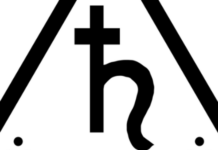The basis of Thelema is the Will (which is Thelema itself in Greek). The command “Do what thou wilt shall be the whole of the Law” (Liber AL I:40) and “There is no law beyond Do what thou wilt” (Liber AL I:60) is often distinguished from the often misunderstood and mistranslated statement of “Do what you want.” Why is “Do what thou wilt” different from “Do what you want?” and is it similar in some respects? On this point, we may examine the positive and negative aspects of Thelema/Will insofar as positive means affirming and negative means denying.
The Negative Aspect of “Do what thou wilt”
The negative aspect of “Do what thou wilt” and Thelema/Will in general refers to those tenets and suggestions which we may answer with a “No” or negatively. The foremost idea that Thelema says “No” to is the idea of an absolute, binding morality and any kind of moral pronouncement. In this sense, “Do what thou wilt” is nearly identical to “Do what you want” because both deny that pronouncements of “You should/ought to do this or that” are irrelevant to our concerns. This is explained succinctly by Crowley when he says,
“The formula of this law is: Do what thou wilt. Its moral aspect is simple enough in theory. Do what thou wilt does not mean Do as you please, although it implies this degree of emancipation, that it is no longer possible to say a priori that a given action is “wrong.” Each man has the right – and an absolute right – to accomplish his True Will.”
-Aleister Crowley, “The Method of Thelema“
Here Crowley asserts that “Do what thou wilt” “implies [the same] degree of emancipation” as “Do as you please” insofar as “it is no longer possible to say a priori that a given action is ‘wrong.'” This is the crux of the “negative aspect” of Thelema/Will – that one cannot argue against a certain action as bad, evil, not useful, unholy, etc. Crowley says also,
“There are no “standards of Right.” Ethics is balderdash. Each Star must go on its orbit. To hell with ‘moral Principle;’ there is no such thing; that is a herd-delusion, and makes men cattle.”
-Aleister Crowley, “The Law is For All”, II:28
Again, “there are no ‘standards of Right’ or wrong and “each Star must go on its orbit.” The fact that there are no objective, external standards firmly allows us to do whatever we Will. But this brings us to the “positive aspect” of Thelema/Will: What is it that we Will? What exactly is our particular “orbit” as a star in the Body of Infinite Space?
The Positive Aspect of “Do what thou wilt”
Insofar as morality and dogma are burdens upon the free exercise of one’s unique and individual Will, they are restrictions, and “the word of Sin is Restriction” (Liber AL I:41). To this we may add the “dogs of Reason” with its questions of “Why” and “Because” for the Will is supra-rational and not to be limited by it. Again, the pressing question once one has discarded the fetters of restriction in their many forms is “What is my Will?” This comes to the aspect of Will which we may say “Yes” to…
The most succinct command in this “positive aspect” is that ancient aphorism and command to “Know Thyself.” This is where “Do what thou wilt” splits apart from and is superior to the simple notion of “Do what you want” or “Do as you please.” Most people do not even know what they really want, what they really Will and this requires and intense, continuing process of exploration and introspection. Traditionally, this is done by the methods of Magick and Yoga in Thelema. This allows us to not only control our body and mind but also explore the hidden regions and expand the understanding of ourselves to the uttermost. As Crowley says in the essay “On Thelema,” “The value of any being is determined by the quantity and quality of those parts of the universe which it has discovered, and which therefore compose its sphere of experience. It grows by extending this experience, by enlarging, as it were, this sphere.” Therefore we must use Magick, Yoga, and whatever methods we Will to explore ourselves and therefore manifest our Wills more fully, freely, purely, and perfectly.
With these considerations of both the negative & positive aspects of Thelema/Will. we may understand the proclamation of the Master Therion when he says,
“From [this], it should be clear that “Do what thou wilt” does not mean “Do what you like.” It is the apotheosis of Freedom; but it is also the strictest possible bond. Do what thou wilt–then do nothing else. Let nothing deflect thee from that austere and holy task. Liberty is absolute to do thy will; but seek to do any other thing whatever, and instantly obstacles must arise. Every act that is not in definite course of that one orbit is erratic, an hindrance. Will must not be two, but one.”
-Aleister Crowley, Liber II: The Message of the Master Therion
Author’s Websites:
- ThelemicStudies.com
- iao131.cjb.net







